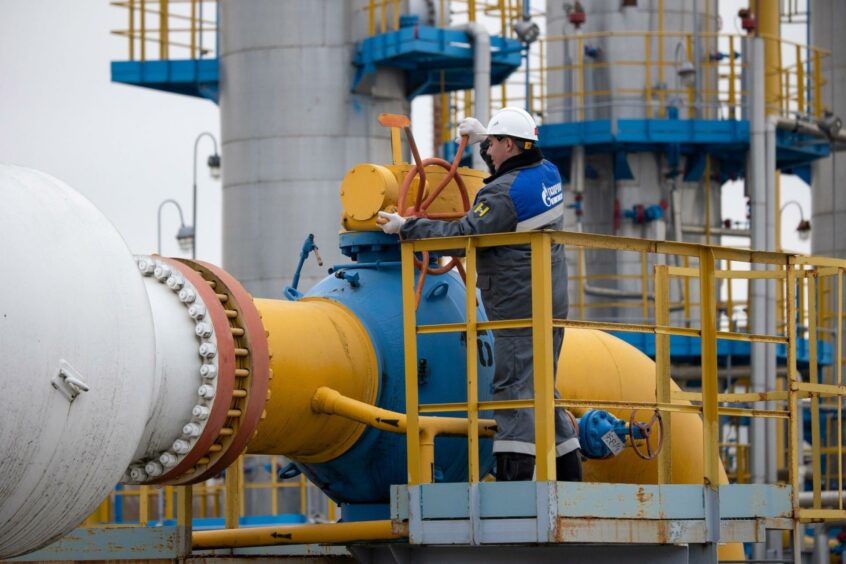
With conflict in Ukraine and sanctions on Russia continuing to exacerbate supply issues, rising energy prices are fuelling new opportunities for private equity in the European oil and gas industry.
This squeeze on energy prices began last year as the post-pandemic recovery in demand for energy highlighted weaknesses in the transition to renewable energy, with dwindling oil and gas capacity causing prices to climb.
But are concerns over energy security and rising energy prices enough to make fossil fuels attractive as a long-term investment opportunity? Particularly as countries stand by their commitments to reach net zero, and investors increasingly focus on impact and ESG strategies?
Commitment issues
Commitments to reducing fossil fuel consumption and investment in oil and gas have been at the forefront of investors’ minds in recent years.
As European governments set increasingly ambitious climate targets, including the European Green Deal that pledges net zero emissions by 2050, so too are funds that are increasingly examining their role in achieving climate goals.
Last October, Dutch pension fund ASP announced that it was looking to divest €15 billion of coal, oil and gas assets by 2023. It joined some 1,500 organisations around the world that have pledged to dispose of $39 trillion of assets in the sector, according to data from DivestInvest.
Private equity investment in the sector also draws negative attention, particularly following the publication of the Private Equity “Dirty Dozen” report by the Private Equity Stakeholder Project, which listed the fossil fuel assets of 10 of the largest private equity groups.
However, energy prices are escalating at unprecedented levels across Europe as the EU tries to reduce its reliance on Russian gas imports. This has led to concerns about fuel poverty and shifting climate priorities down the agenda. As supply constricts, fossil fuels will remain a necessity until alternative energy sources are sufficient to meet demand.
Too lucrative to ignore
Private equity investors have taken advantage of rising energy prices as overall investment in fossil fuels in 2021-22 soared.
By the end of last year, buy-side deals totalled $149.3bn globally, notably including Sval Energi’s $1bn purchase of Spirit Energy’s Norwegian oil and gas operations, with backing from Norwegian private equity firm HitecVision.
This year has seen a continuation of international private equity interest, with $35.5bn worth of investment as suppliers responded to increased demand. Other investors have also sought to expand their reach in Europe, including Israeli conglomerate Delek Group’s $1.5bn acquisition of Siccar Point Energy.
Despite attempts at divestment away from fossil fuels over recent years, statements made in May by asset managers reflect how increased activity in the sector may prove too lucrative for investors to step away from.
Although committed to achieving net zero across its portfolio by 2050, Vanguard doubled down on investment in fossil fuel projects and refused to end support for coal, oil and gas production, citing its fiduciary duty to maximise investment returns.
Similarly, BlackRock indicated that it was likely to vote against shareholder resolutions influenced by climate activists that pursued bans on new oil and gas production.
It is clear that investors have responded to the increased consumer and political demand for fossil fuel-based energy in the sector and the political demand for secure lines of supply for domestic energy consumption.
Towards a renewable future
In part, this interest from investors has come as Russia’s invasion of Ukraine sparked discussion about the role of fossil fuel investment in transitioning towards a net zero future.
From Europe to the US, governments are now placing increasing importance on energy security alongside climate targets, particularly as renewable energy sources are not yet able to bridge the gap in demand following Russian sanctions.
In some instances, investment in certain fossil fuels is being viewed as a stepping stone to greener energy sources. Shifting away from coal and towards ‘cleaner’ fossil fuels such as oil and gas could be a viable strategy to achieve energy goals, whilst retaining sustainable ambitions.
With energy sovereignty now a priority for leaders across the globe, further investment in fossil fuels could be seen as a necessity to ensure a smooth transition away from reliance on Russian energy.
However, in the long term, the potential for stranded or underperforming assets because of negative public attention needs to be considered by private equity sponsors.
Developing dual-track strategies provides a potentially effective way to address this. For example, in March HitecVision announced the creation of a new renewable venture alongside power company TrønderEnergi with an initial investment capacity of up to €2.1bn.
Overall, opportunities in the European oil and gas industry have clearly become more attractive for private equity sponsors.
Whilst sentiment is moving in favour of fossil fuel companies as a means to achieve energy independence, buyers need to be aware of the challenges and negative attention the sector generates, and have a clear strategy in mind for the future of their energy asset portfolio.
Mike Preston is a partner at Cleary Gottlieb.
Recommended for you

 © Supplied by Cleary Gottlieb
© Supplied by Cleary Gottlieb